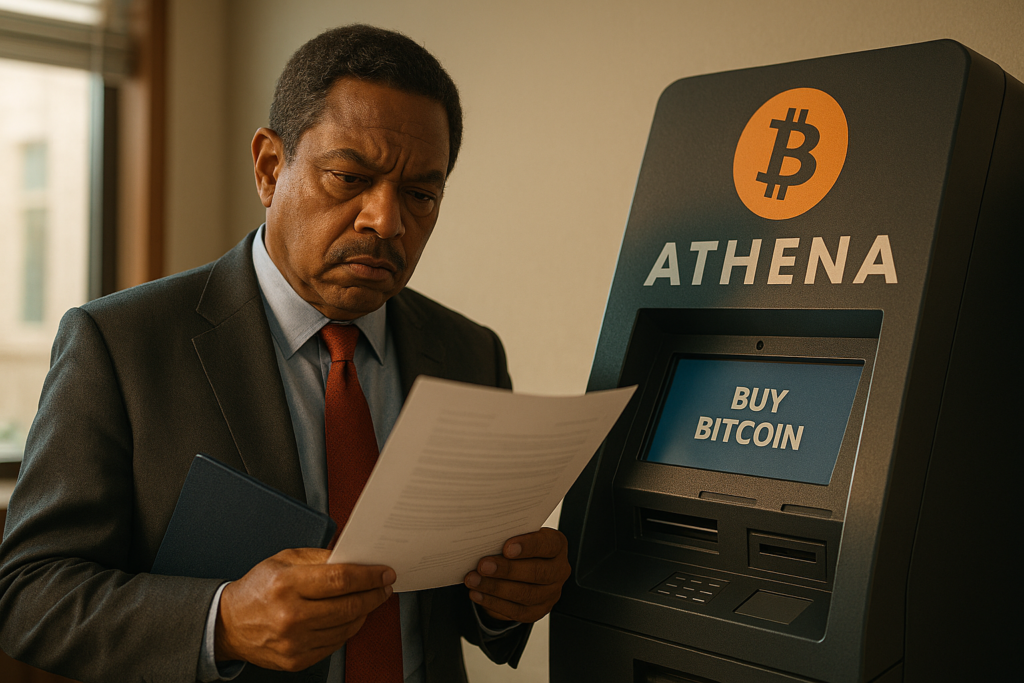Lawsuit claims undisclosed charges and failure to prevent fraud
Washington, DC’s Attorney General Brian Schwalb has filed a lawsuit against crypto ATM operator Athena Bitcoin, alleging the company imposed undisclosed fees while ignoring widespread fraud tied to its machines.
Hidden fees and scam-related transactions
According to the lawsuit, 93% of deposits made through Athena Bitcoin’s kiosks in its first five months of operation were linked to scams. Schwalb criticized the firm’s strict no-refund policy, which he argued blocks victims—many of them elderly—from recovering money lost to fraud and hidden charges.
“Athena knows that its machines are being used primarily by scammers yet chooses to look the other way so that it can continue to pocket sizable hidden transaction fees,” Schwalb said in a statement.
Court filings allege Athena charged fees of up to 26% per transaction without clearly disclosing them, instead referring vaguely to a “Transaction Service Margin.” The lawsuit accuses the firm of engaging in deceptive trade practices and violating consumer protection laws for vulnerable adults.
Data from the attorney general’s office suggests the median age of scam victims was 71, with median losses of $8,000 per transaction. One Washington, DC resident reportedly lost $98,000 at an Athena kiosk. Overall, the office claims Athena pocketed hundreds of thousands of dollars in undisclosed fees between May and September 2024.
The complaint further argues that Athena’s lack of oversight created an “unchecked pipeline for illicit international fraud transactions,” enabling scammers to pressure victims into depositing their life savings.
Growing scrutiny on crypto ATMs
The case comes amid increasing national attention on crypto ATMs. The FBI received nearly 11,000 fraud complaints linked to these machines in 2024, totaling $246 million in losses. At least 13 states, including Arizona and Michigan, have since introduced transaction limits to reduce risks.

With over 26,800 crypto ATMs across the U.S., Athena ranks as the third-largest operator, holding 13% of the market behind Bitcoin Depot and CoinFlip.
Authorities advise users to avoid sending funds to individuals they have never met and to verify unexpected requests directly with the organization involved. Scammers often impersonate tech support staff or fake investment advisors, promising high returns with minimal risk.
As Schwalb’s lawsuit highlights, lack of transparency in fees and weak fraud safeguards pose a growing risk to elderly and vulnerable populations in the expanding crypto ATM market.
Disclaimer
This content is for informational purposes only and does not constitute financial, investment, or legal advice. Cryptocurrency trading involves risk and may result in financial loss.
